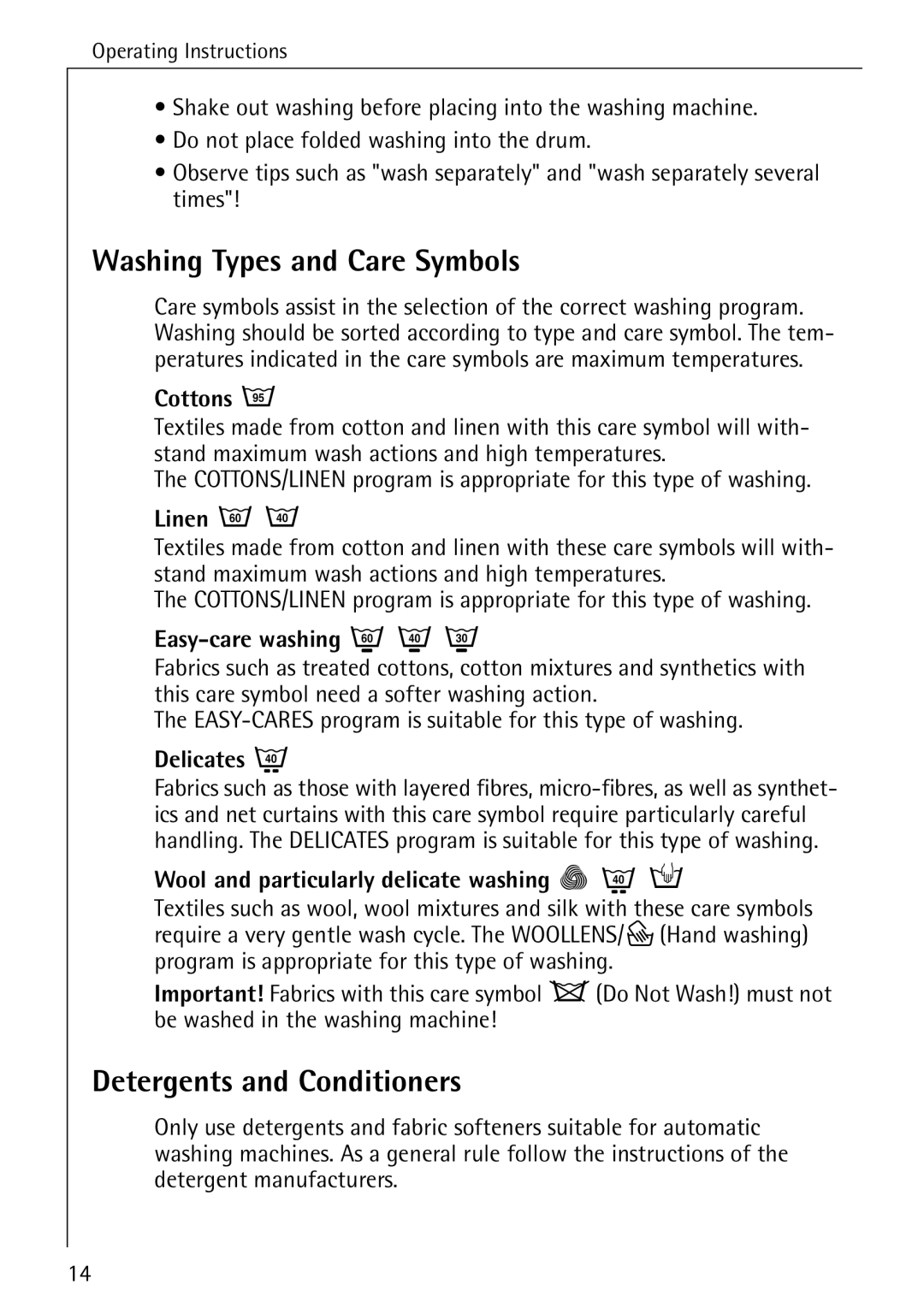
Operating Instructions
•Shake out washing before placing into the washing machine.
•Do not place folded washing into the drum.
•Observe tips such as "wash separately" and "wash separately several times"!
Washing Types and Care Symbols
Care symbols assist in the selection of the correct washing program. Washing should be sorted according to type and care symbol. The tem- peratures indicated in the care symbols are maximum temperatures.
Cottons ç
Textiles made from cotton and linen with this care symbol will with- stand maximum wash actions and high temperatures.
The COTTONS/LINEN program is appropriate for this type of washing.
Linen è ë
Textiles made from cotton and linen with these care symbols will with- stand maximum wash actions and high temperatures.
The COTTONS/LINEN program is appropriate for this type of washing.
Fabrics such as treated cottons, cotton mixtures and synthetics with this care symbol need a softer washing action.
The
Delicates ì
Fabrics such as those with layered fibres,
Wool and particularly delicate washing 9 ì ï
Textiles such as wool, wool mixtures and silk with these care symbols require a very gentle wash cycle. The WOOLLENS/P (Hand washing) program is appropriate for this type of washing.
Important! Fabrics with this care symbol ñ (Do Not Wash!) must not be washed in the washing machine!
Detergents and Conditioners
Only use detergents and fabric softeners suitable for automatic washing machines. As a general rule follow the instructions of the detergent manufacturers.
14
